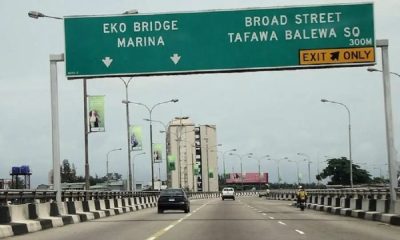Business
Nigerians to pay new taxes on beer, imported vehicles, plastics – FG
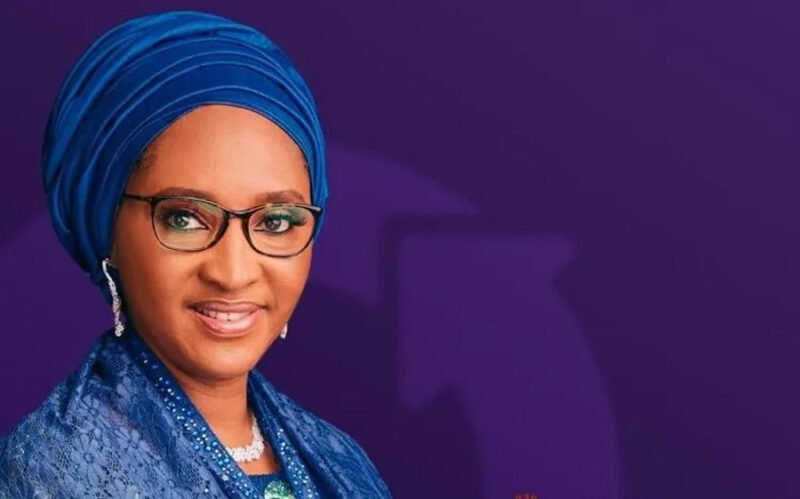
Nigerians to pay new taxes on beer, imported vehicles, plastics – FG
The Federal Government has introduced new set of taxes on beer, imported vehicles and single use plastics.
It has also added to the list of items banned from being imported into the country.
Under the newly introduced taxes, the Federal Government will charge N75 per litre of beer or stout imported into Nigeria.
According to the Minister of Finance, Zainab Ahmed, N75 per litre will be charged on “beer and stout including all alcoholic beverages and beer not made from malt- wether fermented or not fermented” in 2023.
This new excise duty on beer and stout will be increased to N100 per litre in 2024.
Before the new rates, the government taxed imported alcoholic beverages using valorem rates- levying of tax or customs duties) proportionate to the estimated value of the goods or transaction concerned. Now there is a specific rate not an estimate.
The same excise rate for beer will be applied to the importation of wine.
Under the tax laws, two litre engine vehicles will attract an Import Adjustment Tax (IAT) of two percent while vehicles with four litre engines and above will attract four percent IAT with effect from 1June, 2023.
The Federal Ministry of Finance Budget and National Planning quietly issued a circular (HMFBNP/MDAs/circular/2023FP/04) to all Ministries, Departments and Agencies on April 20, 2023 informing them of the new developments.
READV ALSO:
- Iran denies wave of school poisonings, blames ‘enemies’
- Incoming Kano govt will revisit dethronement of Muhammadu Sanusi – Kwankwaso
- Fire razes part of Ooni of Ife palace
Details of the recent tax regimes contained in the new Fiscal Policy Measures (FPM) documents and approved by President Muhammadu Buhari were revealed by Mr. Taiwo Oyedele of PricewaterhouseCoopers on Twitter.
The Federal Government has also revised the import prohibition list with the inclusion of used motor vehicles above 12 years from the Year of manufacture; Paracetamol tablets Syrups; Cotrimozazole tablets and Syrups; Metronidazole tablets and Syrups and Chloroquine tablets and Syrups.
Also included on the list are Folic acid tablets; Vitamin B Complex tablets (except modified release formulations); Multivitamin tablets, capsules and syrups (except special formulations); Aspirin tablets (except modified release formulations and soluble aspirin).
Others are: Magnesium trisilicate tablets and suspensions; Piperazine tablets and syrups; Levamisole tablets and syrups; Ointments penicillin/gentamycin; Pyrantel pamoate tablets and syrups; Intravenous Fluids (Dextrose, Normal Saline etc); Waste pharmaceutiques; and Mineral or chemical fertilisers containing the three fertilising elements nitrogen, phosphorus and potassium (NPK)
The Federal Government also introduced a Green Tax by way of excise duty on Single Use Plastics (SUPs) including plastic containers, films and bags at the rate of 10 percent.
An Import Adjustment Tax (IAT) levy has been introduced on motor vehicles of 2000 cc to 3999 cc at 2 percent while 4000 cc and above will be taxed at 4 percent.
READ ALSO:
- Resident doctors threaten fresh strike, give FG two-week ultimatum
- Population Census Postponed Indefinitely
- Indomie maker kicks after Malaysia, Taiwan reportedly detect cancer-causing substance in products
With effect from 1st June, 2023, “vehicles below 2000cc, mass transit buses, electric vehicles, and locally manufactured vehicles are exempted”.
The circular hrested the matter over the imposition of five percent excise duty on telecommunication services introduced via the Finance Act 2020 and prescribed in the Official Gazette No. 88, Vol. 109 of 11 May 2022 approved by the President.
Going forward, the five percent tax will apply to mobile telephone services (GSM), fixed telephone and internet services- postpaid and prepaid.
Under the Supplementary Protection Measures (SPM) as it relates to the implementation of the ECOWAS Common External Tariff 2022-2026, the circular stated that the changes are effective from 1 May 2023 subject to 90-days grace period for importers who had opened Form M before 1 May 2023.
Items on the list include rice, woven fabrics, ceramics tiles and sinks, steel, containers for compressed or liquified gas, aluminum cans, washing machines, electric generating sets and rotary converters, smart phones, new and used passenger motor vehicles and electricity meters. The applicable duties for most of the items are unchanged from the 2022 FPM rates.
Nigerians to pay new taxes on beer, imported vehicles, plastics – FG
Nation/Platinum
Railway
NRC to revive Lagos 2pm MTTS train as Opeifa tours districts

NRC to revive Lagos 2pm MTTS train as Opeifa tours districts
The Nigerian Railwaiy Corporation (NRC) will soon revive its Lagos 2pm mass transit train service (MTTS) in line with the demands of passengers.
Managing Director of the NRC, Dr Kayode Opeifa, disclosed in Lagos, assuring Nigerians of the readiness of the corporation to serve them better.
He spoke at the Iddo Train Station, while addressing train passengers commuting daily from Ijoko and other border communities in Ogun State to Iddo and Idumota axis of the Lagos Island.
A statement by the Deputy Director of Public Relations at the NRC, Mahmood Yakubu, quoted the MD as saying, “NRC management being aware of the centrality of the MTT Kajola to Iddo rail line to the continued prosperity of the Iddo, Idumota and some other big markets in Lagos will not only continue to sustain the line, but work to add addition service after careful commercial market viability and sustainability studies.”
Opeifa was at Iddo Station to assess the available space in preparation for upcoming developmental and revitalization initiatives.
According to him, the transformation of the Iddo Terminal is central to the corporation’s goal to significantly improve the terminal’s infrastructure, optimize its capacity and elevate the passenger experience
He also said the management would urgently embark on the rehabilitation of the coaches to improve the ambience of the interior of the trains and the Iddo stations for better customer experience and patronage.
Opeifa said he would not hesitate to terminate the contract of any contractor not willing or ready to add value to the corporation’s service.
The managing director, who spent some time going round the Iddo Station, also directed the installation of solar panels around the station to better improve the lightening condition, even as he sent the signal that a comprehensive review of all land leases around the station is underway.
Opeifa was nostalgic about the several interesting monuments and railway relics.
He called on corporate organisations and other philanthropists to support the corporation in the area of provision of conveniences for train passengers as part of their corporate social responsibility.
The Railway District Manager (RDM), Engr Augustine Arisa, and District Superintendent, Mrs Chidinma Mba, also informed the MD that the prosperity of the Idumota market is also related to the operations of the MTT line as any day the train does not run, the market feels it.
The NRC MD had earlier commenced his maiden tour of the NRC districts across the country, with a tour to the Running Shed of the corporation at Ebute Metta, which he learnt was a hub to other districts.
He expressed delight at the industry of ironmen (women engineers and technicians) working in the corporation who are competing with their male counterparts in ensuring that all the nation’s rolling assets are in serviceable conditions.
The tour took him to the store, where Opeifa directed that the management must commence the painting of several legacy buildings of the corporation across the country.
He added that the corporation was determined to improve its image as a frontline mobility service provider and the hub for logistics services in the country.
Opeifa who observed that there are no scraps in the railway, reiterated earlier calls on Nigerians to beware of anyone vandalizing the rail materials across the country, adding that security agencies especially the Nigeria Security and Civil Defence Corps (NSCDC) had been directed to prosecute anyone caught vandalizing any rail assets.
He said the corporation would put back to shape as many narrow gauge locomotives still serviceable and would deploy them across the country to serve passenger traffic anywhere the corporation had existing train lines just as the Federal Government would aggressively continue to invest and expand the national standard gauge corridor.
The tour also took the managing director to the Battery Room, as well as the laboratory, an inspection of all the mechanical fluids which was a crucial facility responsible for analyzing the quality and integrity of mechanical fluids used in NRC rail operations.
He assured the laboratory that the management under his watch would continue to support their growth and development as he himself trained and once worked as an analytical chemist.
The tour also took Opeifa to Agege Station where he had a closed door meeting with officials from the Lagos Metropolitan Area Transport Authority (LAMATA), led by the Director Rail Services Engr Olasunkanmi Okusaga, on how to firm up security challenges between the two stations Babatunde Raji Fashola Station and the Lagos State Train Station at Agege Station.
Opeifa who was led round by the Agege Station Manager, Mrs Ese Asowata, went round to check the station’s conveniences, the VIP Lounge, the control room, the ticketing lounge and administrative sections among others.
The managing director took time to address the concerns of some train passengers, one of them, Olatunde Apata, who complained of what could be done for any passenger who missed his train. Apata, who was heading to the Prof. Wole Soyinka Station, in Abeokuta, Ogun State, had missed his train because he went to pray.
Addressing all challenges Opeifa directed that under no circumstances should the ticket not work to relief passengers with disability access the train.
He equally said efforts were being made to see how the issue of those missing their train would be addressed even as he disclosed that the NRC and LAMATA were working at how to ensure passengers could co-switch and access the metro train to continue their journey from the stations.
Auto
KIA, Access Bank launch special finance scheme for vehicle ownership

KIA, Access Bank launch special finance scheme for vehicle ownership
KIA Motors Nigeria in partnership with Access Bank Plc has unveiled a new finance scheme designed to increase vehicle ownership and affordability in the country.
The deal, according to a statement by the auto firm, offers flexible and affordable financing alternatives, enabling individuals, women, and businesses to own cars with ease.
The scheme features the all-new Kia Rio 2023, with repayment plans spanning five to seven years.
Marketing Manager, KIA Motors Nigeria, Omolade Akinyode, said, ”Dana Motors has been at the forefront of Nigeria’s automotive industry since 2002, providing exceptional automotive solutions and presently leading the charge for luxury electric cars, CNG cars and buses.
“Our partnership with Access Bank reinforces our commitment to supporting Nigeria’s economic growth, individuals, and women.”
She also said, ”Our core competitive edge in the auto industry is the offering of best in class vehicles at affordable prices and this retail financing scheme is a significant step towards promoting vehicle ownership in Nigeria.
”With a flexible repayment option of up to 48 months, equity contribution as low as 10% and over N6m discount and we are proud to be at the forefront of this initiative to make owning the all-new Kia Rio 2023 a dream come through for our Nigerian Customers.”
KIA stated that the car in the package, Rio 2023, is an award winning five-seater sedan, a fun car with a reputation for durability, reliability, comfort and fuel efficiency.
With safety features which include stability control, traction control, and multiple airbags, the all new KIA Rio 2023 is an excellent choice for customers who prioritize dependability in vehicle options,” it stated.
Auto
NADDC DG hails Kojo Motors for establishing CNG conversion centre in Owerri

NADDC DG hails Kojo Motors for establishing CNG conversion centre in Owerri
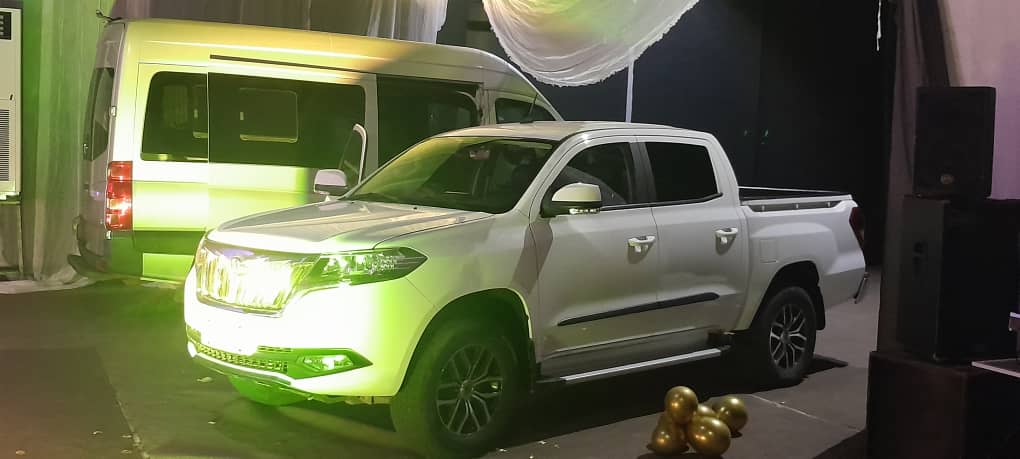
Kojo Motors has partnered the National Automotive Design and Development Council (NADDC) in setting up the vehicle Compressed Natural Gas conversion centre in Owerri, lmo State.
Director-General of the NADDC, Joseph Osanipin, during an empowerment and awareness summit on Wednesday, March 19, 2025, commended the auto firm for the monumental project.
“Today, we are gathered here for Compressed Natural Gas (CNG) Empowerment and Awareness Summit 2025 with the theme ‘Building a youth-based nation through cleaner energy’,” he said.
Osanipin said that the the purpose of the summit was to create awareness and sensitize the public to safety, standards and regulation in the use of the CNG as a better alternative source of energy for mobility.
NADDC, he said, was equipping technicians with the knowledge, skills and competencies required to safely and efficiently convert vehicles to run on CNG.
“The Council is a parastatal of the Federal Government under the Federal Ministry of Industry, Trade and Investment,” he added.
“It has the regulatory oversight on the Nigerian Automotive Industry to initiate, recommend, supervise and regulate policies and programmes for locally manufactured vehicles and components in Nigeria.
The NADDC boss noted that the Council had worked tirelessly to ensure the survival and growth of this sector with a view to enhancing its contribution to the national economy.
As part of the CNG conversion programme, 60 technicians will be receiving hands-on training in converting vehicles to run on CNG which would run for five days from the March 17 to 21,2025.
Osanipin emphasized the importance of using certified conversion kits and specialized workshops to ensure safety during the process.
“The cylinders used in CNG vehicles are fortified, making them safer than traditional vehicle fuel tanks,” he said.
Also speaking during the event, Professor Anoka Njan, representative of the Minister of Industry Trade and Investment, praised the NADDC and Kojo Motors efforts, stating that the ministry fully supported the initiative as part of broader efforts to alleviate challenges in the auto industry and empower the youth.
Imo State Commissioner for Youth Development, Dr. Emeka Mandela Ukaegbu, who spoke at the summit on behalf of Governor Hope Uzodinma, emphasised the immense potential of the CNG in easing Nigeria’s transportation challenges and improving the economy.
“CNG offers a safer, cleaner, and cheaper alternative to the hardships many face in the country,” Dr. Madela said.
The administration is partnering with NADDC and automotive industry bodies to establish conversion workshops and CNG refilling stations across Imo State, ensuring that the state plays a key role in this important shift toward greener energy solutions.
The event marks a significant step in NADDC’s ongoing efforts to transform Nigeria’s automotive industry, making it more sustainable while creating new opportunities for skilled technicians and local communities.
Chinedu Oguegbu, Managing Director of OMAA, which is the vehicle brand promoting the petrol-powered to CNG conversion project, highlighted the economic benefits of running vehicles on CNG instead of petrol.
He listed the economic advantages to include savings up to 60 percent in the cost of fuel relative to dirtier options like diesel and petrol.
According to him, there is up to 90 percent reduction in knocks and carbon emission, and it is found to be healthier, cleaner and more environmentally friendly.
Besides savings in foreign exchange (FX) with abundance of gas locally, there is also massive resources in-country over 203 tcf of proven reserves that requires no refining and relatively lower investment for processing.
Nigeria has an estimated 15-20 million vehicles in operation that can be converted to dual-fuel or bi-fuel.
The OMAA boss reiterated the crucial need to provide an alternative to existing fuel system with the abundance of CNG as an option.
Delivering his goodwill message, Chino Ogwumike, the National Sales Manager at Kojo Motors, thanked the DG of NADDC for partnering with Kojo in this laudable project in Owerri, the heartland of the South-East of Nigeria and the government of Imo State for accepting to provide the land for building the CNG hub in the state capital.
Ogwumike stated that the flourishing automotive dealership with branches spread across the country under the visionary leadership of the founder and Executive Chairman, Ikenna Oguegbu, is strongly committed to contributing its quota towards the progress and development of Nigeria’s automotive sector and the economy.
-
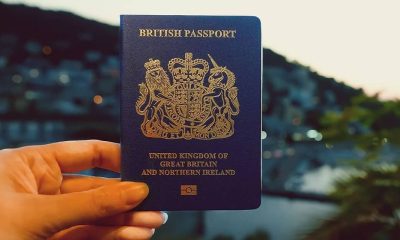
 International3 days ago
International3 days agoUK announces new passport application fees starting April 2025
-

 metro1 day ago
metro1 day ago‘We’re not hiring,’ NNPC denies viral recruitment adverts
-

 metro16 hours ago
metro16 hours agoNatasha: Court blocks recall attempt, stops INEC
-
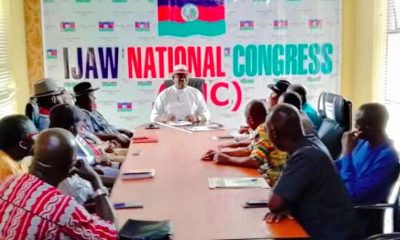
 metro2 days ago
metro2 days agoMore trouble brews in Rivers as Ijaw congress considers self-determination option
-

 metro3 days ago
metro3 days agoCourt lifts order stopping Senate probe on Natasha Akpoti
-

 Sports17 hours ago
Sports17 hours agoOdegbami speaks on Osimhen breaking his 44-year goals record
-

 metro3 days ago
metro3 days agoMohbad’s brother, Adura, arrested by police in Lagos
-

 metro3 days ago
metro3 days agoTanker explodes on Abuja bridge, many feared dead, 30 vehicles burnt



